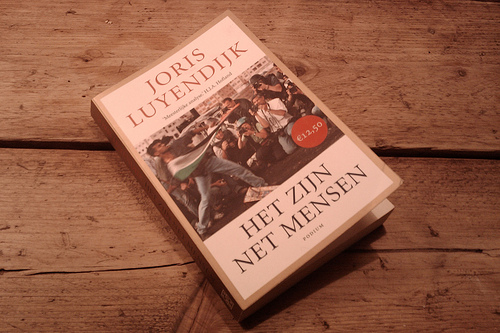
I read the book inDutch (“Het zijn net mensen”), but it has been published in English as well. Which is great, because it lets me tell you about it on this blog. And I do believe this book os interesting to anyone in the Western world, and perhaps even in the other parts as well 😉
The news you consume is excessively filtered
Although this might not be as big an eye-opener as it was when the book was published (2007), it still applies. Any international news that you consume through media channels that are operated by editors, are filtered and keyed towards impact. Not information or knowledge, but the amount of ‘thrill’ or news-worthy-ness decides if the story is broadcast to you. And even then, the story is (most of the times) constructed from bits and pieces of content that were prepared by – get this- the subject itself.
It is impossible to ‘do’ regular journalism from within dictatorships
Because regular journalism requires being able to research your sources, check facts, find information. None of that exists in dictatorships. However, the journalist has no means to get that message across to his audience, because it would not constitute ‘news’.
We need to understand that we consume filtered news when we do. We need to realize that, unless we take an interest to the local ways of any place that we hear news from, we cannot really gauge the impact of anything reported. This is a big task for any regular citizen. Luckily, the internet helps us here. There is still hope, if we only make the effort.
[amazon_link id=”184668384X” target=”_blank” ]”Hello Everybody!” on Amazon.com[/amazon_link]
“Het zijn net mensen” op Bol.com
Related articles
- Joris Luyendijk: ‘The old model of journalism is broken’ (guardian.co.uk)
